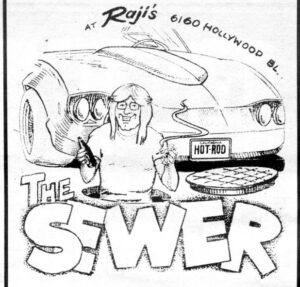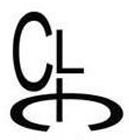Choosing a cool artist name is a very important part of branding. You don’t want to have a name that sounds heavy metal when you are doing indie pop, or a band name that is difficult to pronounce or spell. And you for sure do not want to call your band a name that others have used- and own.
At least once a month, I have to give someone the bad news that there is another band out there that owns their name and that the smart move is to find another name- and trademark it- as soon as possible.
The good news in doing this is that your songs can transfer along with the spin counts to your new name, but the bad news is that you have lost the steam you had going due to past marketing or playlist action. And, quite frankly, it doesn’t look that professional to have to change your name due to a lack of business savvy.
The reason The Weeknd took the last “E” out of his name after his first record is that a wonderful Canadian emo-pop band from the 2000s owned the name. Being good business people as well as great songwriters, they asked him to buy the name from them since the band was no longer together.
He said no, I would like to imagine politely, and changed the spelling instead. But when you are as big as the Weeknd it is pretty easy to get your “people” to handle the work around a name change and pay whatever it takes to rebrand under the new spelling.
But for an independent and up-coming artist, this can be demoralizing and financially burdensome at a time when every dollar you have should be spent on marketing, not rebranding.
So, how exactly do you find out if anyone owns your band name? You can start by checking streaming services, social media, and Google searches. But the smartest thing to do is to go to the United States Patent and Trademark Office at USPTO.gov and find out if the name is available. If so, you can own your band name for between $250-$700.
Being the government, it is a bit tricky with different categories to choose from, but you will be covered if you choose “entertainment services” and “musical categories.” In most cases. Keep reading.
That is an expense for sure, but a lot less expensive and demoralizing than working to get your band known, only to find out that you have to start over because of a mistake that is easily avoided if you had planned ahead.
Once you do that, it would be a smart idea to also buy the domain name of your band using the .com and .band domains, so that no one can try to shake you down when it is time to create your website.
Domain trolls, people who buy up those website addresses and sell them for profit, do exist. A very successful domain troll is the father of a well-known musician. But that is a story for a different post.
If you are a solo artist, that is all you need to do. But if you are a duo or band, you need to include the details of ownership of the name in your band agreement, as well as the theme of an upcoming post. So stay tuned.
However, you may also want to consider spending the extra $250-$350 to cover the merchandise. I had an experience with that and will share it here.
In 2009, I was managing a band from Columbia, SC called Villanova, which is also the name of a very big university located in the Philadelphia metro area. The band was offered a deal from Republic Records, and just after signing, I called the legal department of the University to make sure that they wouldn’t come after us for using the name for a band, even though they had a band of their own that played at sporting events.
I called in, and the head of the legal department was intrigued and polite enough to give me a Master Class-level lesson on Trademarks. After telling me that I was right- the University could not stop the band from calling themselves Villanova- I thought, well, that is that. But then he laughed and asked, “Do you plan to sell merchandise with the name Villanova on it?”
“Because that we can- and will- stop you from doing.” My heart sank, and the band, who had a regional hit on Active Rock Radio, had to change their name right after signing with Republic. They ended up calling themselves “Weaving The Fate” and the confusion at radio caused the label to pull back and decide not to finish recording an album. A five-song EP was released, and without that radio buzz, the band was soon dropped in large part because the name change caused them to lose the steam that a big label like Republic needed to justify spending the money it took at that time to promote a band to radio. Their career as a major label artist lasted three weeks.
Over a decade later, the songs on the EP have a very impressive spin count and the band a respectable number of monthly listeners, due to the fact that they still play out a lot across the South East and have a small but die-hard fan base.
Now, to talk about choosing your pen name wisely. I was 19 years old and had a stack of fake IDs, all with different names, when I first started going to clubs. Some of them worked at certain places and some didn’t work anywhere. This often left me sitting on the curb looking stupid for hours, waiting for my friends to enjoy a show that I could barely hear through the club walls.
The friend who helped me escape Richmond let me borrow his birth certificate to go to the DMV back in the days when the DMV computers only had your vital stats, not your photo. Then we realized that we could not walk into clubs together, having the same name and birthday with different photos and street addresses, so we sat down to brainstorm.
Wouldn’t it be funny, he said, if you called yourself Hot Rod Long so you would be Long, Hot Rod on all the guest lists. And I knew then that I had found my pen name. Because when you are a small-town 19-year-old new to Los Angeles, things like that are funny!
Within a few months of my first review, the biggest fanzine covering the rock scene gave me two pages bi-weekly for my writing, and my name started getting out there. In the 1989 Hollywood Rock Scene, who didn’t want to meet a guy called Hot Rod Long who could help promote their band?
I would often meet people who thought they knew me or had hung out with me in the past. My favorite was the guy who swore that we did shrooms together at a Slayer concert in 1985, when I was in the 10th grade in Virginia, and I soon learned it was a lot easier to just say “DUDE… what’s up!!?” than to try to explain the truth to them.
 In 1990, I started to promote shows at legendary Hollywood punk bar Raji’s and needed to come up with some way to get people who didn’t normally go to Raji’s to come try the place out. Raji’s was a below street level club with a bathroom on either side of the stage that never got cleaned, and the entire place stank of urine. So I decided to call my nights Club Sewer, and my roommate ended up designing a pretty funny logo, which is attached here.
In 1990, I started to promote shows at legendary Hollywood punk bar Raji’s and needed to come up with some way to get people who didn’t normally go to Raji’s to come try the place out. Raji’s was a below street level club with a bathroom on either side of the stage that never got cleaned, and the entire place stank of urine. So I decided to call my nights Club Sewer, and my roommate ended up designing a pretty funny logo, which is attached here.
I did a lot of good shows at Raji’s, helping a lot of bands get signed and giving a lot of bands that later got signed their first Los Angeles show. And those shows were the reason that I got my first major label A&R job when I was only 21.
And although Hot Rod was great for my branding back then, all these years later, it is still a little hard to live down. I have not introduced myself to anyone as Hot Rod in over 25 years. But when I go out with friends and run into someone I have met as Hot Rod, there are usually some questions, but the old friends speak highly of me, and that makes me feel great.
But for what I was trying to do then, which was get a job at a major label, Hot Rod Long was indeed the perfect pen name.
So if you are a band, a solo artist, or someone trying to break into the industry, be sure to give your name some thought, as it really can help make a difference in how things work out.
